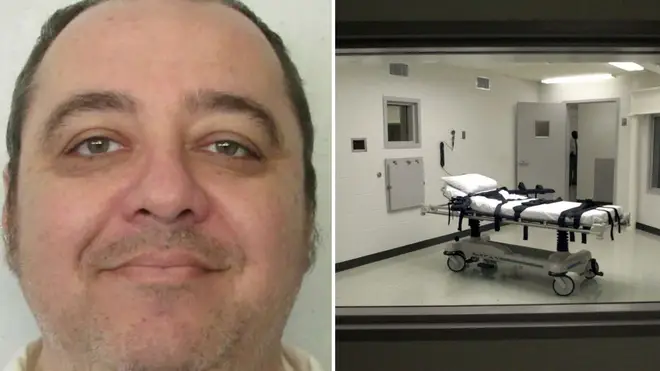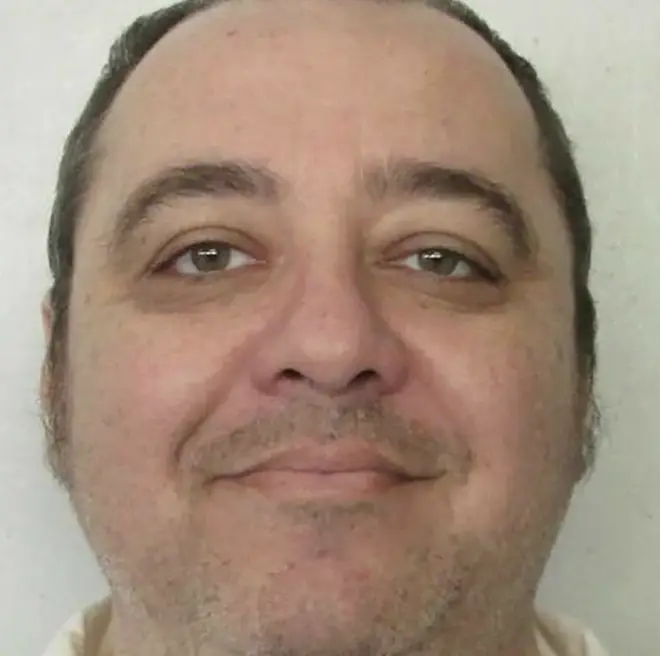
Clive Bull 1am - 4am
25 January 2024, 06:06 | Updated: 25 January 2024, 06:33

An Alabama inmate faces execution by nitrogen hypoxia after federal courts declined to block an appeal.
Kenneth Eugene Smith, 58, will have nitrogen pumped into his body through a mask for up to 15 minutes on Thursday at 6pm local time.
Smith was convicted in 1989 of murdering a preacher’s wife, Elizabeth Sennett, in a killing-for-hire.
He was one of two men convicted of murdering Ms Sennett, 45, in a killing-for-hire for $1,000 each in 1988.
The killer’s lawyers submitted a last-minute appeal to halt the execution which they described as a cruel and unusual punishment but US courts declined the appeal.
The UN’s High Commissioner for Human Rights has said that gassing the convict could amount to torture or other inhumane treatment as it called for a halt.
His execution by nitrogen would make him the first person in the world to be put to death by this method, according to the Death Penalty Information Center.
It would also be the nation’s first execution by a new method since 1982.
Lawyers for Smith, who has been on death row since 1996, have said they are hoping for an 11th-hour reprieve after submitting a final appeal to the nation’s top court.
The state already tried to put Smith to death by lethal injection two years ago but the attempt failed as the executioners were unable to raise a vein before their death warrant expired at midnight.

Smith and his fellow hitman, John Forrest Parker, beat Ms Sennett with a fireplace implement and stabbed her in the chest and neck. Her death was staged to look like a home invasion and burglary.
Parker was executed in 2010.
The pair were brought in by Ms Sennett’s husband, a debt-laden preacher who wanted to collect insurance money. He later went onto kill himself amid investigations.
Smith admitted to being present at the time of Ms Sennett’s death but denied being the one to carry it out.
Lawyers submitted an appeal to the Supreme Court arguing that to put a convict through multiple execution attempts violates the Eight Amendment - which protects against “cruel and unusual punishment”.
However, the justices declined to hear the appeal and request to halt the execution.
Smith also lodged a separate legal challenge to a US court over the legality of using nitrogen gas.
The request was rejected but his lawyers have said they will appeal a second time to the Supreme Court.
They have argued the nitrogen method is new and “untested”, and puts Smith at risk of choking on his own vomit.
But the state said in a court filing that Smith is expected to lose consciousness within seconds and die within minutes.
The new method of execution has been introduced in the state, alongside two others, due to difficulties in procuring the drugs typically used in lethal injections.
State Attorney General Steve Marshall previously called it "perhaps the most humane method of execution ever devised".
This comes after the American Veterinary Medical Association ruled it was too 'distressing' to use to euthanise animals in 2000.
Dr. Philip Nitschke, an assisted suicide expert, said he’s concerned the use of the mask to dispense the gas risks oxygen leaking in and potentially prolonging the procedure.
Alabama currently has 165 people on death row and has one of the highest per capita execution rates in the US.
Smith's conviction in 1989 was initially overturned on an appeal but he was retried and convicted for a second time in 1996.
The jury made a recommendation for a life sentence but the judge overruled the recommendation, instead sentencing him to death.